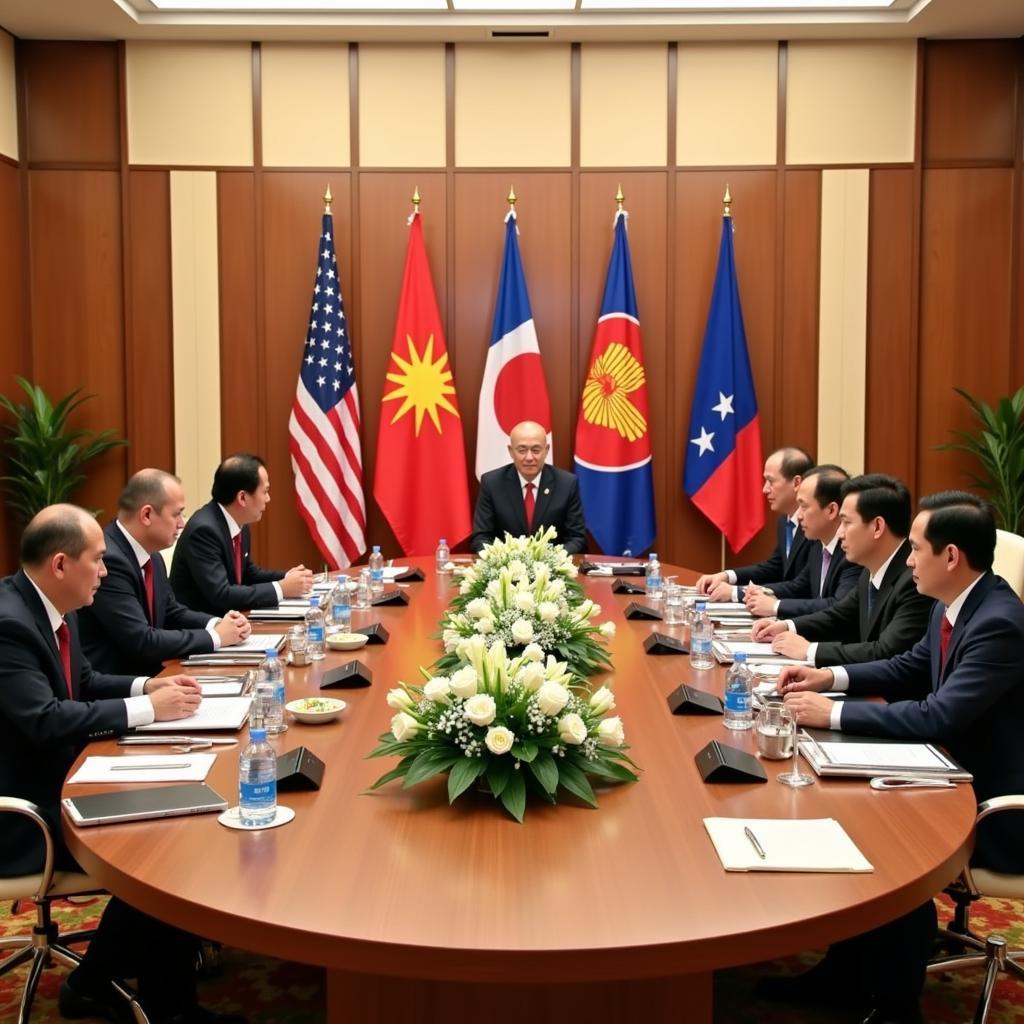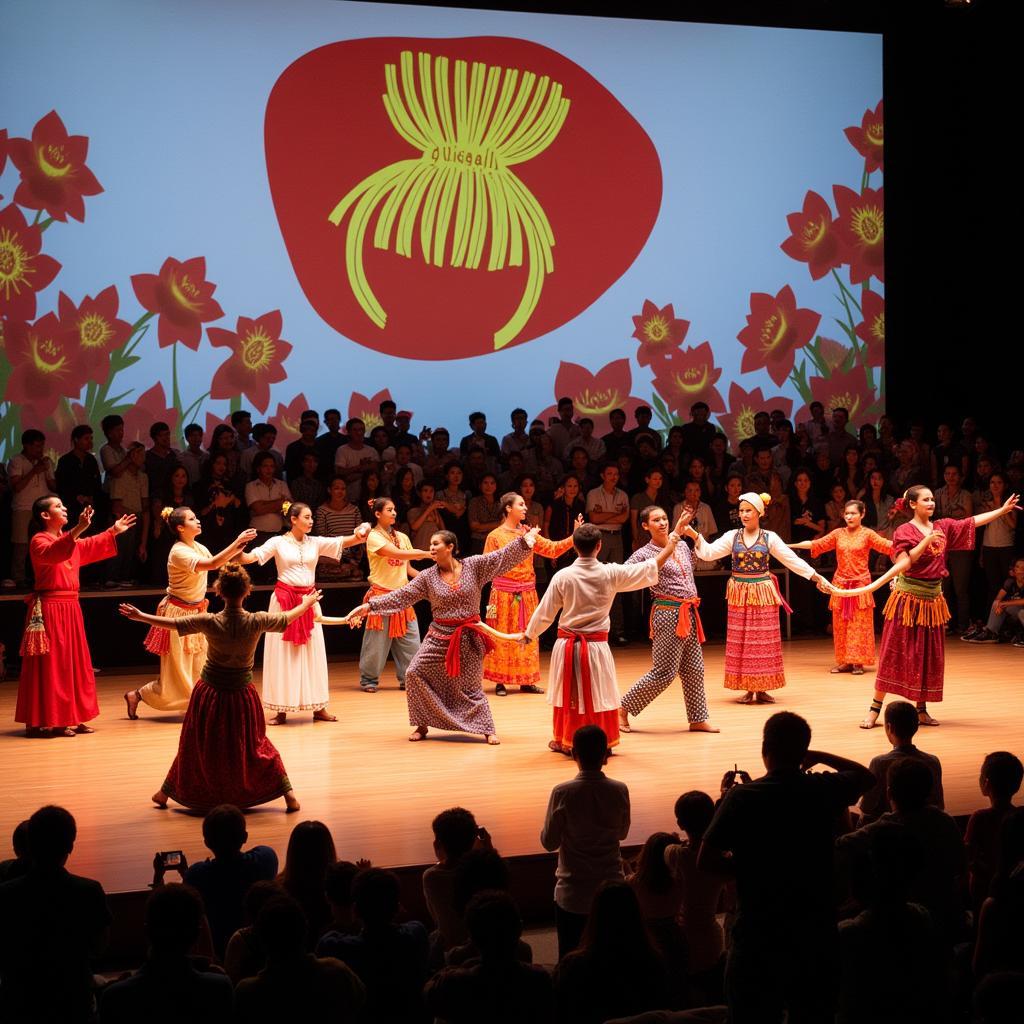ASEAN-Japan relations have flourished over the decades, evolving into a multifaceted partnership that encompasses economic cooperation, cultural exchange, and political dialogue. This dynamic relationship is rooted in shared values, mutual respect, and a common vision for a peaceful and prosperous Asia-Pacific region.
Historical Ties and the Foundation of ASEAN-Japan Cooperation
Japan’s engagement with Southeast Asia dates back centuries, with ancient trade routes and cultural exchanges shaping early interactions. However, the modern foundation for ASEAN-Japan relations was laid in 1973 when Japan became the first dialogue partner of ASEAN. This marked the beginning of a formal and enduring partnership.
The establishment of the ASEAN-Japan Forum in 1977 further solidified cooperation, providing a platform for regular consultations and dialogue on a wide range of issues. Over the years, ASEAN-Japan relations have expanded significantly, encompassing various sectors such as trade, investment, development assistance, science and technology, and people-to-people exchanges.
 ASEAN-Japan Summit
ASEAN-Japan Summit
Economic Cooperation: A Cornerstone of the Relationship
Economic ties form the cornerstone of ASEAN-Japan relations. Japan has been a major investor in ASEAN economies, contributing significantly to the region’s economic growth and development. ASEAN countries, in turn, serve as vital markets for Japanese goods and services, creating a mutually beneficial economic partnership.
The ASEAN-Japan Comprehensive Economic Partnership Agreement (AJCEP), which entered into force in 2008, has further boosted trade and investment flows between the two regions. The AJCEP has facilitated the liberalization of trade in goods and services, promoted investment, and enhanced economic cooperation in various sectors.
Beyond traditional trade and investment, ASEAN and Japan are also collaborating in emerging areas such as digital economy, innovation, and infrastructure development. The Japan-led Mekong-Japan Cooperation initiative, for example, focuses on narrowing the development gap within ASEAN and promoting sustainable development in the Mekong sub-region.
Cultural Exchange and People-to-People Connectivity
While economic ties remain crucial, ASEAN-Japan relations are also deeply rooted in strong cultural connections and people-to-people exchanges. Japan’s rich cultural heritage, including its art, music, cuisine, and traditional practices, has captivated the hearts and minds of many in Southeast Asia.
“The cultural affinity between Japan and Southeast Asia is undeniable,” says Dr. Mai Lan, a cultural anthropologist specializing in Southeast Asian Studies. “From anime and manga to traditional tea ceremonies and martial arts, Japanese culture has permeated various aspects of Southeast Asian societies, fostering a sense of familiarity and appreciation.”
 ASEAN-Japan Cultural Festival
ASEAN-Japan Cultural Festival
ASEAN and Japan have implemented numerous programs and initiatives to promote cultural exchange and people-to-people connectivity. These include educational scholarships, student exchange programs, cultural festivals, and tourism initiatives. These endeavors aim to foster mutual understanding, appreciation, and lasting friendships between the people of ASEAN and Japan.
Addressing Regional and Global Challenges Together
As active participants in regional and global forums, ASEAN and Japan are committed to working together to address shared challenges. This includes maintaining peace and stability in the Asia-Pacific region, promoting sustainable development, combating climate change, and upholding a rules-based international order.
“In an increasingly interconnected world, ASEAN and Japan recognize the importance of collaborative diplomacy and multilateralism,” states Dr. Hiroshi Sato, a prominent scholar on international relations specializing in the Asia-Pacific. “Their shared commitment to dialogue, cooperation, and peaceful resolution of disputes serves as a model for other regional partnerships.”
ASEAN and Japan actively cooperate in regional security frameworks such as the ASEAN Regional Forum (ARF) and the East Asia Summit (EAS). They also work closely within international organizations such as the United Nations (UN) to address global challenges and promote peace, stability, and prosperity worldwide.
Conclusion: Looking Ahead to a Brighter Future
ASEAN-Japan relations have come a long way since their formal establishment decades ago. The partnership has evolved into a comprehensive and multifaceted one, encompassing various areas of cooperation and addressing shared challenges. As both ASEAN and Japan continue to grow and prosper, their relationship is poised to deepen and expand further, contributing to a more peaceful, prosperous, and interconnected Asia-Pacific region.
For those interested in exploring specific facets of ASEAN-Japan relations, you might find these articles insightful:
- ASEA Redox Japan: Delve into the presence and impact of this health and wellness company in the Japanese market.
- ASEAN Career Fair with Japan Companies: Discover opportunities for ASEAN professionals seeking careers with Japanese companies.
- 2nd ASEAN-Japan Music Festival: Relive the vibrant celebration of music and cultural exchange at this notable event.
As we navigate the complexities of the 21st century, the enduring partnership between ASEAN and Japan serves as a beacon of hope and a testament to the transformative power of collaboration, dialogue, and mutual respect. By working together, ASEAN and Japan can continue to shape a brighter future for their people and the world.
FAQs about ASEAN-Japan Relations
- What is the significance of Japan being ASEAN’s first dialogue partner?
- This historical milestone marked the beginning of a formal and enduring partnership, signifying Japan’s commitment to engaging with Southeast Asia.
- What are some key achievements of ASEAN-Japan economic cooperation?
- The AJCEP has significantly boosted trade and investment. Joint initiatives focus on digital economy, innovation, and infrastructure development.
- How does Japan contribute to cultural exchange with ASEAN?
- Through scholarships, exchange programs, cultural festivals, and tourism initiatives, Japan promotes mutual understanding and appreciation.
- How do ASEAN and Japan address regional security concerns?
- They cooperate in the ARF, EAS, and other frameworks, promoting dialogue and peaceful resolution of disputes.
- What is the future outlook for ASEAN-Japan relations?
- The partnership is expected to deepen and expand, contributing to a more interconnected and prosperous Asia-Pacific.
Need Assistance?
For further inquiries or assistance regarding ASEAN-Japan relations or any related topic, please contact:
- Phone Number: 0369020373
- Email: [email protected]
- Address: Thôn Ngọc Liễn, Hiệp Hòa, Bắc Giang, Việt Nam
Our dedicated customer support team is available 24/7 to assist you.
